Organizations









List of Organizations and Platforms
In this section you will find information about organizations and platforms that work in the protection of human rights defenders.
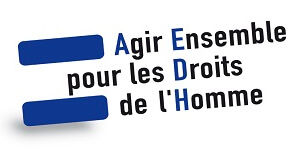
Agir Ensemble pour les Droits de L’homme (AEDH)
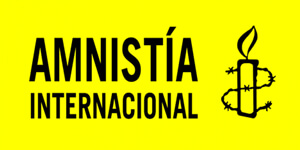
Amnesty International
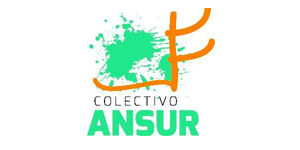
Colectivo Ansur

Asociación Exil
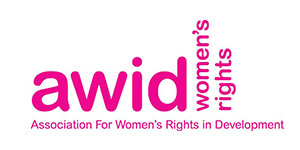
Association for Women’s Rights in Development (AWID)
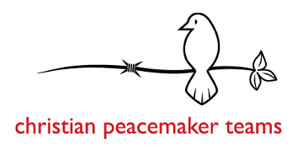
Christian Peacemaker Teams
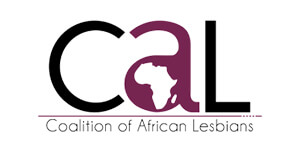
Coalition of African Lesbians (CAL)
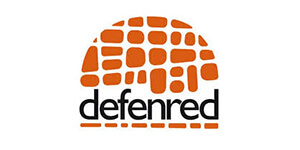
Defenred
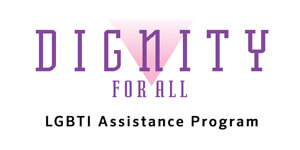
Dignity For All: LGBTI Assistance Program
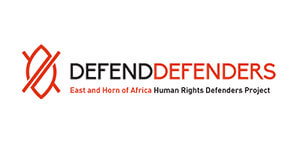
DEFENDDEFENDERS - East and Horn of Africa Human Rights Defenders Project (EHAHRDP)
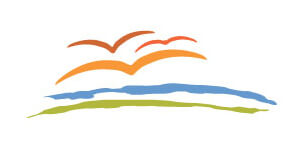
Euro-Mediterranean Foundation of Support to Human Rights Defenders
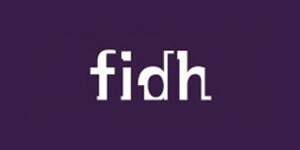
International Federation For Human Rights
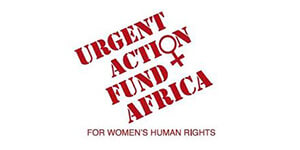
Urgent Action Fund for Women’s Human Rights - Africa
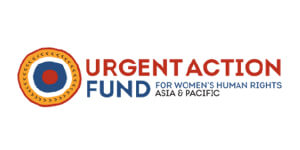
Urgent Action Fund for Women’s Human Rights – Asia & Pacific
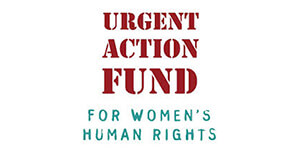
Urgent Action Fund for Women’s Human Rights – San Francisco
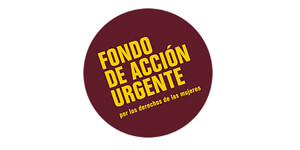
Urgent Action Fund for Women’s Human Rights –Latin America and Caribbean
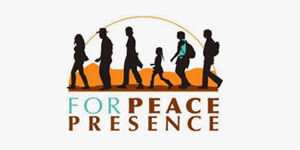
FOR Peace Presence
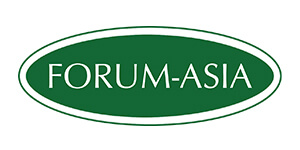
Asian Forum for Human Rights and Development (Forum Asia)
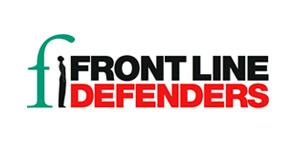
Front Line Defenders
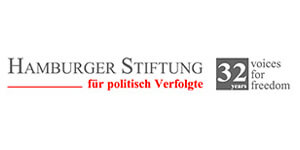
Hamburg Foundation for Politically Persecuted People
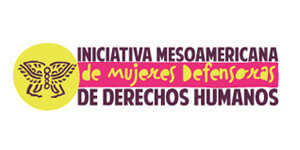
Mesoamerican Initiative of Women Human Rights Defenders
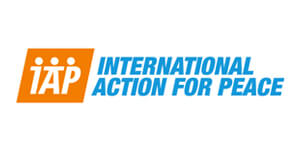
International Action for Peace
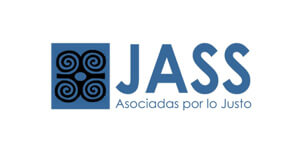
JASS – Just Associates
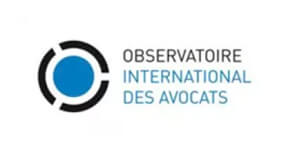
International Observatory for Law at Risk
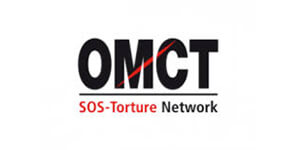
World Organization against Torture (OMCT)
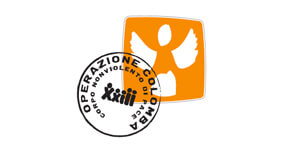
Operazione Colomba
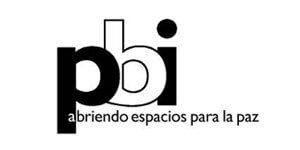
Peace Brigades International
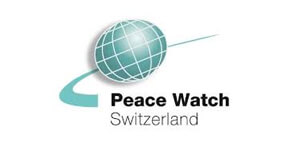
Peace Watch Switzerland
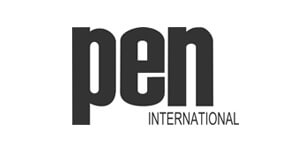
Pen International
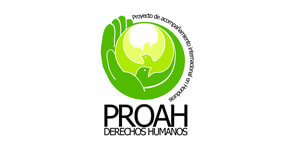
International Accompaniment Project in Honduras
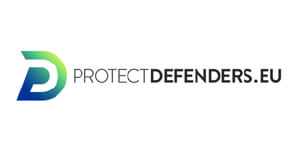
Protectdefenders.eu
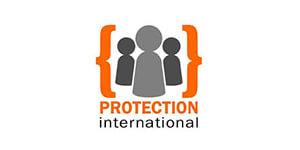
Protection International
Amnesty International

It is an organization working for the defense of human rights in a global scale. Their work consists in the investigation on human rights abuse, dialogue and pressure to the authorities, mobilization, public communication and the support to the activists working in the situations where the injustices takes place.
Contact:
Evidencing the attacks against human rights defenders, as well as the state repression methods in order to silence this collective are among Amnesty International strategies.
More information about the section of human rights defenders in: https://www.es.amnesty.org/en-que-estamos/campanas/valiente/

Urgent requests
When Amnesty International is notified about a person or collective been in an extremely dangerous situation, a global network is activated, where thousands of connected people, unify their pressure capacity sending letters, faxes and emails.
More information about the urgent requestshere.
Agir Ensemble pour les Droits de L’homme (AEDH)

Agir Ensemble pour les Droits de l’Homme (AEDH) is a French NGO whose priority it is to defend and promote human rights and basic freedoms worldwide.
Where Do They Work
Africa, Latin America, Asia, and Middle East.
Contact:

Emergency Grants
It has an emergency fund dedicated to the protection of Human Rights defenders. It allows them to respond quickly when defenders feel threatened
The methods of intervention are adapted according to the local context, the risk level and the requests made by the affected people. It can consist of:
- Initial help for defenders that have been threatened with arbitrary arrest or detention, kidnapping or homicide, for defenders who need to escape urgently from their country of origin or the place where they live.
- Social and relocation assistance in another country or region for activists who have successfully escaped from a dangerous area and who need help and assistance with settling in the country to which they have fled.
- Legal assistance notably in the case of arbitrary arrest.
- Medical assistance in cases where human rights defenders have been subjected to violence, ill treatment or torture.
- Intervention to promote and guarantee the safety of the defender with the authorities responsible for posing the threat.
Colectivo Ansur

Is a working team that strives to contribute to the transformation of the social, economic and political conditions that go against the fundamental human rights of individuals and communities. They do this by accompanying and supporting victims’ organisations, NGOs and social organisations linked and dedicated to the defence of human rights and to building peace
Where do they work?
Colombia, Spain, Honduras, Mexico, Paraguay.
Contact:
It offers training in protection and focuses on the following areas of need: psychosocial support, empowering organisations, protocols and security, establishing networks and advocacy. On its website there are several manuals with information and guidelines on the protection of defenders of human rights.
Asociación Exil

EXIL is a non-profit, nongovernmental organisation that focuses on providing therapeutic, psychological and social support to people who have been subjected to human rights violations. EXIL works with exiled people and victims of war, persecution, imprisonment, violence or torture.
Where do they work?
Spain.
Contact:

Psychosocial Support
EXIL offers a specialised and holistic service for torture victims (including human rights defenders) and their families, offering psychological, psychiatric and social support
Association for Women’s Rights in Development (AWID)

AWID is an international, feminist, membership organisation committed to achieving gender equality, sustainable development and human rights for women.
Where do they work
Internationally.
Contact:

Urgent petitions and help networks:
They work collaboratively with international and regional networks and our membership to raise awareness about human rights abuses and violations against WHRDs and the systemic violence and discrimination they experience and to strengthen protection mechanisms and ensure more effective and timely responses to WHRDs at risk.
They aim to contribute to a safer world for WHRDs, their families and communities by:
- Promoting collaboration and coordination among human rights and women’s rights organizations at international level to strengthen responses concerning the safety and wellbeing of WHRDs.
- Supporting regional networks of WHRDs and their organisations, in promoting and strengthening collective action for protection - emphasizing the establishment of solidarity and protection networks, the promotion of self-care, and advocacy and mobilization for the safety of WHRDs.
- Increasing the visibility and recognition of WHRDs and their struggles, as well as the risks that they encounter by documenting the attacks that they face, and researching, producing, and disseminating information on their struggles, strategies, and challenges.
- Mobilizing urgent responses of international solidarity for WHRDs at risk through our international and regional networks, and our active membership.
Christian Peacemaker Teams

International Christian organisation that seeks to support peace defenders in conflict areas. They believe they can transform war situations and army occupation.
Where do they work
More permanently in Colombia, Iraq, North America (indigenous justice) and Palestine.
Temporary projects in: Democratic Republic of Congo, USA, Mexico and Canada borders.
Contact:

International Accompaniment
CPT places teams internationally with threatened communities and in conflict areas. They send volunteers to those countries to challenge human rights violations and to promote nonviolent action to resolve conflicts.
Coalition of African Lesbians (CAL)

The Coalition of African Lesbians is a feminist, activist and Pan-Africanist network of eleven African countries, committed to advancing freedom, justice and bodily autonomy for all women on the African continent and beyond. CAL has worked inside the Human Rights Commission in Africa to defy prejudices and include LGBT rights within the platform of Human Rights in Africa.s
Contact:

Psychosocial Support
CAL has got a programme for female defenders based on self-care, physical and social wellbeing. They offer a programme of early intervention in which female defenders can learn to be more conscientious about their own health and wellbeing and take ownership of it by identifying and sharing their own, individual needs. In this programme they give female defenders a break to allow them to look after themselves or to study, depending on certain criteria.
Defenred

Defenred runs a programme to promote the self-care and wellbeing of human rights defenders. To achieve this, they´ve got a Respite House. Their vision is: “If activists take a break to look after themselves, if they raise awareness of what their situation is and what the impact of their daily fight for Human rights has on their lives, the possibility of effecting change is heightened. They could improve their overall wellbeing, giving them the strength to continue with their role as defenders long-term, in a much healthier way”.
Based on this vision, they´ve got the following objective: “To raise awareness of the need for self-care as a political tool in human rights work (human rights defenders, their organisations and society in general)”.
Where do they work:
The Respite House is situated in a small rural area near Madrid. They work with defenders from all around the world (who speak either English or Spanish).
Contact:

Psychosocial Support
Defenred offers Human rights defenders (HRD) a period of rest for their physical and psychological recovery. Similarly, in the defender’s interest, Defenred tries to facilitate institutional contacts which may be used to support and reinforce their work when they return home.
What are they looking for?
- To undertake a health check on human rights defenders and to identify how influential their activism is.
- To incorporate self-care needs into defenders’ daily work.
- To provide tools and advice on self-care so defenders can put them into practice when they go back to their country of origin.
How do they do it?
- Defenders stay in the Respite House for 4 to 6 weeks.
- During their stay, Defenred offers different types of professional support (psychological, physical and medical), accompaniment and leisure time to help them recover their strength. This support helps defenders to assess their health and make changes (through self-care) when they return to work.
The therapeutic value of solidarity in this Project is fundamental. If defenders are received with solidarity and care, their healing process will be much more positive and will reinforce trust and belief in themselves and in their human rights defence work.
Dignity For All: LGBTI Assistance Program

Dignity for All: LGBTI Assistance Program is a consortium of eight leading human rights and LGBTI organizations that provides emergency assistance, advocacy funding, and security support to human rights defenders and civil society organizations under threat or attack due to their work for LGBTI rights.
Contact:

Emergency Assistance Grants
Dignity for All will provide small, short term emergency grants for medical expenses, legal representation, prison visits, trial monitoring, temporary relocation, dependent support, security, equipment replacement and other types of urgent expenses.
By definition, emergency assistance is finite and given to address a time-sensitive threat. An emergency may also encompass the need for more than one type of assistance (i.e. medical and legal, or equipment replacement).
Applications can be submitted by a human rights defender directly or referred on behalf of them. Please provide as much detailed information as possible on why emergency aid is needed
DEFENDDEFENDERS - East and Horn of Africa Human Rights Defenders Project (EHAHRDP)

DefendDefenders seeks to strengthen the work of human rights defenders (HRDs) throughout the region by reducing their vulnerability to the risk of persecution and by enhancing their capacity to effectively defend human rights.
Where Do They Work?
Burundi, Djibouti, Eritrea, Ethiopia, Kenya, Rwanda, Somalia, Sudan, Tanzania, Uganda.
Emergency line 24 hours:
Contact:

Medical and Psychosocial assistance
DefendDefenders Works with network members to provide support to human rights defenders who need trauma treatments. In some cases, it could be private psychologists who treat them.

Legal assistance
It provides legal advice and support to those defenders who need it.

Observation during trials
DefendDefenders send experts to observe in defenders’ trials, making sure that they get a fair trial.

Urgent petitions
Makes appeals when defenders are attacked and sends letters to national authorities. Appeals and petitions are on the website.

Supervision and solidarity visits
To undertake ongoing monitoring of defenders at risk.
Euro-Mediterranean Foundation of Support to Human Rights Defenders

The EMHRF aims at promoting and enhancing a human rights culture and the consolidation of a nascent democratic civil society within the South-Mediterranean region by providing strategic financial assistance and support to local, national and regional human rights non-governmental organizations and institutes as well as individuals who promote, support, protect and monitor the observance of human rights in the region.
Contact:

Emergency Assistance Grants
They provide emergency grants to human rights defenders who are at risk as a result of carrying out their activities in the area.
Applicants seeking an emergency intervention by the Foundation in support of their situations/activities must submit a written request in Arabic, English or French. When assessing a request, the Foundation takes into account potential financial support that could be obtained from other organizations or institutions involved at the national, regional or international level.
In such cases, the Foundation endeavours to refer the applicant to potential funding partners in order to avoid any duplication.
The application form needs to be sent in Word (application form is on the website) to the following email address: grants@emhrf.org
International Federation for Human Rights

FIDH (International Federation for Human Rights) is an international human rights NGO federating 184 organisations from 112 countries. FIDH defends all civil, political, economic, social and cultural rights as set out in the Universal Declaration of Human Rights.
FIDH acts in conjunction with its member and partner organisations. Its actions are founded on three strategic pillars: securing the freedom and capacity to act for human rights defenders, the universality of rights and their effectiveness.
In 1997, FIDH in partnership with the World Organisation against Torture (OMCT) created the Observatory for the Protection of Human Rights Defenders.
Where do they work?
International level.
Contact:

Medical and Psychosocial assistance

Legal assistance
The Observatory provides legal assistance to human rights defenders, including covering legal expenses and a lawyer for defenders who are victims of judicial harassment.

Observation during trials
FIDH sends experts to observe in defenders’ trials.

Urgent petitions
FIDH has established an alert mechanism to deal with urgent requests about defenders at risk. It provides information about each case and about the actions each country should follow and address for people and organisations who want to participate in the campaign.

Emergency Assistance Grants
They provide emergency grants to human rights defenders at risk. The grants may include: Physical security, digital security, communications expenses, strengthening capacities in security, safe transport, legal support, medical assistance (including psychosocial support and rehabilitation), humanitarian assistance (including support for relatives), urgent relocation, documentation and advocacy.

Supervision and solidarity visits
FIDH organises solidarity and fact-finding missions, with the following objectives:
- Help defenders in extremely difficult situations.
- Support defenders so they can continue with their mission.
- Get defenders in contact with Intergovernmental organisations’ representatives, regionally and internationally, as well as with foreign authorities to promote their activities;
- Alert international media about human rights and their situation in the country.
Urgent Action Fund for Women’s Human Rights - Africa
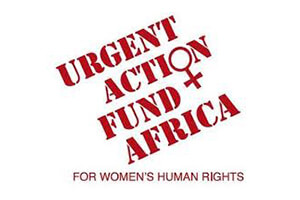
Urgent Action Fund is a feminist fund that supports human rights defenders (women and transgender people) who are at risk. There is an international alliance between four independent funds that support Human Rights defenders (women) worldwide:
Where do they work?
African Continent.
Contact:
Urgent Action Fund- Africa is committed to strengthening the leadership capacity of women, to bring equity and justice. At the same time, it contributes to achieving a conflict free society. Urgent Action Fund Africa, in solidarity with other Funds has dedicated their efforts to armed conflict areas, escalated violence, extreme repressions and volatile political situations. Additionally, this fund develops initiatives that support the rights of activist women in an African context.

Emergency Grants
Urgent Action Fund has got emergency Grants for activist women and women rights organisations at risk because of what they do.To apply for an emergency grant, please download the application form from: https://www.uaf-africa.org/what-we-do/rapid-response-grantmaking/
Urgent Action Fund for Women’s Human Rights – Asia & Pacific

The Urgent Action Fund for Women's Human Rights Asia and Pacific (UAF A&P) and the Rapid Response Grants (RRGs) were established to provide protection and support to women, non-binary (e.g., lesbian, trans) human rights defenders or organisations that face urgent risk in their advocacy to uphold women’s human rights and human rights in general.
Urgent Action Fund, Asia and Pacific (UAFA&P) builds the resilience of women’s rights and LGBT rights movements in three ways:
- Rapid Response Grantmaking
- Advocacy & Alliance-Building: We leverage the power we have as a funder to advocate for women and transgender human rights defenders.
- Global Consortium of Urgent Action Funds to support women, transwomen and girls’ activism globally.
Where do they work?
Asia y Pacífic
Contact:

Rapid Response Grant-Making
The Urgent Action Fund for Women's Human Rights Asia and Pacific (UAF A&P) Rapid Response Grants (RRGs) were established to provide protection and support to women, non-binary (e.g., lesbian, trans) human rights defenders or organisations that face urgent risk in their advocacy to uphold women’s human rights and human rights.
Grants are targeted at meeting the following needs: Security measures, legal assistance, risk assessment, security equipment, psychological support, post traumatic treatment, medical assistance, etc…
To apply, please fill the application form and send it to : grants@uafanp.org
Urgent Action Fund for Women’s Human Rights – San Francisco
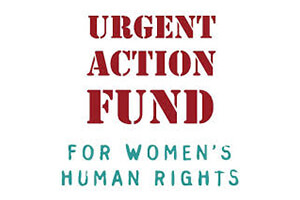
Urgent Action Fund for Women’s Human Rights is a feminist fund that protects, strengthens and sustains women and transgender human rights defenders at critical moments. They intervene quickly when activists are poised to make great gains or face serious threats to their lives and work. We are an international alliance of four funds:
- Urgent Action Fund – Africa
- Urgent Action Fund – Asia
- Urgent Action Fund – Latin America
- Urgent Action Fund – San Francisco
Where do they work
Middle East, Europe, North America and French and English Caribbean
Contact:

Emergency Assistance Grants
They award rapid response grants to women and transgender human rights defenders in Asia, the Middle East, Central and Eastern Europe, and North America.
Activists apply for grants of up to $8,000 USD in any language on any day of the year and are guaranteed a response within 72 hours.
Urgent Action Fund for Women’s Human Rights – Latin America and Caribbean

Urgent Action Fund for Women’s Human Rights is a feminist fund that protects, strengthens and sustains women and transgender human rights defenders at critical moments from their regional office in Bogota, Colombia. They intervene quickly when activists are poised to make great gains or face serious threats to their lives and work. We are an international alliance of four funds:
- Urgent Action Fund – Africa
- Urgent Action Fund – Asia
- Urgent Action Fund – Latin America
- Urgent Action Fund – San Francisco
Contact:

Rapid Response Grant making
They award rapid response grants to women and transgender human rights defenders at risk because of the work they do. These grants are provided for a maximum period of 5 months and amount to a maximum of 5.000 dollars.
To apply for a grant, please go to the website .
For Peace Presence

FOR Peace Presence is a non-governmental organisation dedicated to the international accompaniment of communities and people at risk dedicated to the promotion of human rights, peace and justice in Colombia.
Where do they work
Colombia
Contact:

International Accompaniment
It offers physical security, political visibility and solidarity through the accompaniment of communities and organisations who adhere to active non-violence to defend life, land and dignity.
The accompaniment in Colombia is based on:
- Physical Presence
- Political accompaniment
- Motivation and support to human rights defenders
- Building a movement, relationships and networks
Asian Forum for Human Rights and Development (Forum Asia)

The Asian Forum for Human Rights and Development (FORUM-ASIA) works to promote and protect human rights, including the right to development, through collaboration and cooperation among human rights organisations and defenders in Asia and beyond.
FORUM-ASIA is a network of 58 members in 19 countries, and it is committed to building a peaceful, just, equitable and ecologically sustainable community of peoples and societies.
Non dihardute?
Afghanistan, Bangladesh, Bhutan, Brunei, Cambodia, China, North Korea, South Korea, Philippines, Hong Kong, India, Indonesia, Falkland Islands, Japan, Malaysia, Myanmar, Mongolia, Nepal, Pakistan, Papua New Guinea, Sri Lanka, Taiwan, Thailand, Timour Leste, Vietnam.
Contact:

Legal assistance
It provides legal advice and support to those defenders who need it. To access this legal assistance, the defenders must be FORUM ASIA members or work with this network in Human Rights.

Observation during trials
It sends experts to observe in defenders’ trials, to offer support to those defenders accused by government and non-governmental institutions. The observers are members of this network with experience in monitoring cases that include human rights.

Emergency Grants
Forum Asia offers financial support for the temporary relocation of human rights defenders at risk, those who have already exhausted all other resources available prior to the relocation. This assistance lasts for up to 6 months inside a member organisation
Front Line Defenders

Front Line Defenders aims to protect human rights defenders at risk (HRDs), addressing the protection needs identified by HRDs themselves.
Where do they work?
Everywhere, but mainly where defenders are at a higher risk.
Contact:
Emergency helpline
+353-1-210-0489

Legal assistance
It provides legal advice and support to those defenders who need it, covering lawyers’ fees, visits to prison and clothes through their security grants programme.

Medical and Psychosocial assistance
It provides medical and psychosocial assistance to those who need it through their security grants programme.

Observation during trials
It sends experts to observe in defenders’ trials, making sure that they get a fair trial and an international observer is present. In some cases, Front-Line Defenders will send an independent observer on behalf of the defender.

Urgent petitions
Front-Line Defenders has an alert mechanism for defenders’ urgent appeals. It provides brochures with information that is sent to the country’s authorities.
Hamburg Foundation for Politically Persecuted People

The Hamburg Foundation supports politically persecuted people who, because of advocating democracy, freedom and human rights, find themselves in a dangerous, often life-threatening situation in their native countries.
Contact:
They invite politically persecuted people to stay for one year, integrating them into a network of German and international opinion leaders in politics, media, and civil society. Their choice of guests is neither determined by their origin nor by their profession. In cooperation with their guests, they organize cultural and political events.
They inform the public of the fate of politically persecuted people and collaborate with national and international human rights organizations, initiating and supporting petition campaigns for political prisoners.
Recommendations come from the Organization for Security and Cooperation in Europe (OSCE), the PEN Centre, Amnesty International, from German and also foreign diplomatic missions, from organizations such as “Reporters Without Borders”, “Journalists Help Journalists”, the Foundation of the Hamburg Press, from representations abroad of major political foundations, amongst others. The Foundation’s guests come from many different countries: Algeria, Tunisia, Nigeria, Burundi, Cameroon, Iraq, Iran, Afghanistan, Bangladesh, Tajikistan, Kirgizstan, Mexico, Colombia and many more.
Mesoamerican Initiative of Women Human Rights Defenders

The Mesoamerican Women Human Rights Defenders Initiative was launched in 2010 in order to develop a comprehensive and regionally-relevant response to increased violence against women human rights defenders.
Founded and led by a political alliance between JASS Mesoamerica, La Colectiva Feminista para el Desarrollo Local (El Salvador), AWID, Consorcio para el Diálogo Parlamentario y la Equidad, Oaxaca (México), Unit for the Protection of Human Rights Defenders in Guatemala, (UDEFEGUA) and the Central American Women’s Fund (FCAM), the initiative benefits from an unusual blend of experience, expertise, geographic scope and relationships. The Initiative’s programs are mainly carried out through National Networks in El Salvador, Honduras, Mexico and Guatemala.
Where do they work?
El Salvador, Guatemala, Honduras, Mexico and Nicaragua.
Contact:
IM-Defensoras ekimenak babes integral feministarako alternatibak diseinatzen ditu, defendatzaileek indarkeriari aurre egiteko. Izan ere, indarkeria pairatzen dute, alde batetik, egiten duten lanagatik, eta bestetik, emakumeen aurkako diskriminazio-testuingurua nagusi delako eskualdean. Diseinatutako alternatibak lagungarriak dira berdintasunean eta ongizatean lanean jarraitzeko.

Psychosocial Accompaniment
They combine training, self-care, research, social media activism, urgent action and human rights advocacy to raise awareness about the important but often invisible leadership role played by women defenders in the advancement of human rights.
The Initiative is dedicated to strengthening and mobilizing women defenders from distinct social movements and organizations for recognition, enhanced impact and protection in a volatile context. Through an innovative approach that places gender at the heart of protection, the Initiative has been built from the bottom up by convening and organizing a wide range of women defenders from across Mexico and Central America, including those most vulnerable to violence such as rural and indigenous women defending land rights and environmental justice, lesbian and transgender activists, and feminists advocating for an end to violence.
It has three Foster Homes, in El Salvador, Guatemala and Mexico, for defenders under imminent risks; and a Respite House “La Serena”, in Mexico, for defenders who feel burn out. All of them are open to all the defenders of the Mesoamerican area and, eventually, their families.

Urgent petitions
This organisation holds permanent campaigns and international communication that has contributed to a public opinion supporting defenders, their work and their needs for protection. Urgent actions and solidarity for the defenders at risk are an empowerment strategy and some of the measures to discourage violence in a national context.
The Regional Attacks Monitoring System for Defenders in Mesoamerica works registering attacks to defenders in 5 different countries. It allows for a historical and comparative attacks gender analysis, impact assesment and identifies the needs for the protection of defenders. The System information has allowed to publish specialized reports used in court cases, reports and regional visits of Comision Interamericana de Derechos Humanos (CIDH) and the United Nations Human Rights Council, as well as human rights international organisations.

Emergency Grants
Rapid Response and Self-Care Funds, sensitive to gender related needs, have reinforced the security and wellbeing of more than 2251 defenders, 400 families and 500 organisations.
International Action for Peace

International Action for Peace defends human rights and the construction of a culture of peace through international accompaniment in Colombia and education for development.
Where do they work?
Colombia
Contact:

International Accompaniment
KIt offers international accompaniment to peasant organisations and human rights defenders in Colombia based on the following three basic pillars:
- 1. Physical presence in high risk environments as a deterrence factor to direct threats. Through communication and dialogue, IAP informs potential aggressors of the consequences of some actions, according to the country law and constitution as well as the human rights international treaties and international humanitarian law. This physical presence creates a safe space so defenders can do their work
- 2. Political campaign through meetings with military and civilian authorities, diplomats, other NGOs, international development organisations or social movements, building a support network.
- 3. Dissemination and awareness about the human rights situation in Colombia, promoting a peace culture and international solidarity.
JASS – Just Associates

JASS believes that women who are most affected by the political, economic, environmental and health crises reverberating across the world are on the frontlines of change. Founded in 2003 by activists, educators and academics from 13 countries, JASS was built on long-standing relationships of political trust and solidarity, grounded in shared ideas about how change happens. It produces knowledge about power, movements and change needed to shape theory, practical and politics, promoting women rights and democratic change.
JASS has regional teams in:
Where do they work?
Zambia, Malawi, Zimbabwe, Cambodia, East Timor, Indonesia, Philippines, Burma, Malaysia, Mexico, Honduras and Guatemala. Occasionally in USA, Holland, Thailand, South Africa, Botswana, Namibia, Panamá, Nicaragua, El Salvador and Costa Rica. They got an independent programme with feminist groups in Uganda and Kenya.
Contact:

Psychosocial Support
JASS coordinates the Human Rights Defenders Mesoamerican Initiative (IM-Defensoras) in alliance with five national, regional and international organisations.
JASS Mesoamerica manages a Women Defenders Programme. They sustain protection and self-care regional alliances in Honduras, Mexico, Guatemala and El Salvador. They network more than 200 defenders.
- • JASS promotes safe and trustworthy places where defenders can express themselves as victims of violence. These are spaces that allow defenders to have a support network they do not have with their families, communities and organisations.
- JASS promotes the recognition of women’s work towards human rights.
- It undertakes gender analysis related to violence against defenders in each country in the area within a regional and international strategy.
- Promotes the strengthening and capacity building that allows defenders, individually or collectively, to develop their own protection strategies.
- Mobilize a variety of resources to respond to different protection needs.
- Develops analysis and strategies to promote self-care as the way to guarantee social movements sustainability.
International Observatory for Law at Risk

The International Observatory for Law at Risk (OIAD – Observatoire International Des Avocats, in French) has been created by initiative of Conseil National des Barreaux (France), Barreau de Paris (France), Consejo General de la Abogacía Espanola (Spain) and Consiglio Nazionale Forense (Italy).The Observatory records and follows cases and situations limiting or stopping the free practice as lawyers anywhere around the world. The objective is to give effective support to that practice threatened or persecuted because of reasons associated with the profession. For that, OIAD collaborates actively with: lawyers who are victims or with their families; bar associations or other organisations belonging to this field; national and international NGOs; national and international public institutions; intergovernmental associations.
Additionally, the following are active members of it:
Cameroon: National Council of Legal Protection.
Spain: Colegios de Abogados de Barcelona, Madrid, Señorío de Bizkaia, Lleida, Talavera de la Reina and Caceres.
France: Bar Association in Caen , Hauts-de-Seine, Metz, Montpellier, La Rochelle – Rochefort, Lyon, Rouen, Strasburg, Tour, Thonon les Bains and Rennes.
Italy: Bar Association in Bari, Brescia, Messina, Milan, Oristano, Rome and Torino.
Switzerland: Bar Association in Geneva
Turkey: Bar Association in Diyarbakir
Where do they work?
They work internationally.
Contact:
Mikel Cordoba(Consejo General de la Abogacía Española):
mikel.cordoba@fundacionabogacia.org
Josquin Legrand(Conseil National des Barreaux):
Anne Souleliac(Barreau de Paris):

Legal assistance
It sends lawyers to the field to offer legal, moral and/or material assistance for lawyers who are threatened or persecuted for human rights related activities and/or the exercise of the law. It can inform bar associations and anybody who is promoting the protection of lawyers to be able to take the case on board and provide a quick assistance to the threatened person.

Observation during trials
It sends lawyers to observe during trials.

Urgent petitions
It sends urgent communications and allegations to bar associations, national and international political authorities and local and international human rights associations.
World Organization against Torture (OMCT)

Created in 1985, the World Organisation Against Torture (OMCT) is today the main coalition of international non-governmental organisations (NGO) fighting against torture, summary executions, enforced disappearances and all other cruel, inhuman or degrading treatment.
Where do they work:
International presence.
Contact:

Medical and Psychosocial assistance
Including for emergency treatment when such treatment is not affordable or accessible, and we facilitate longer-term treatments

Legal assistance
Including providing access to a lawyer, intervening on a victims’ behalf, or collecting evidence of torture through medical examinations that can be used in court.

Observation in Trials

Urgent petitions
It provides information about each individual case and the action plan for the country’s authorities. It provides addresses for the defenders or organisations to use.

Supervision and solidarity visits.
With the following objectives:
- Support defenders at risk.
- Support defenders and their activities.
- Get defenders in touch with regional and international NGOs’ representatives and foreign authorities.
- Alert international media about their situation and the human rights situation in the country.
Operazione Colomba

Operazione Colomba is the Nonviolent Peace Corps of the Association Comunità Papa Giovanni XXIII. It was born in 1992 thanks to the wish of some volunteers and conscientious objectors to effectively experience a nonviolence approach in conflict areas.
Where do they work?
Albania, Colombia, Lebanon (refugee camps) and Palestine.
Contact:

International Accompaniment
We aim to protect civilians more exposed to the violence, through our neutral and international presence and through nonviolent direct actions such as: physical interposition, reporting of complaints on human rights violations, accompaniment of refugees or threatened people, actions of solidarity, supporting the meeting and mediation between the fighting parties and protecting minorities.
Peace Brigades International

PBI works in countries where communities experience violent conflict, intimidation or repression. Their approach combines on-the-ground expertise and local knowledge with international advocacy, aiming to ensure that human rights defenders are able to carry out their work, contributing to social justice and peace, in relative safety.
They provide protection, support and recognition to local human rights defenders who work in areas of repression and conflict and have requested their support. They take an integrated approach, combining a presence alongside human rights defenders on the ground with an extensive network of international support. They use their international presence and global networks to protect, support and enable the work of human rights defenders and local activists for peaceful social change.
Where do they work
Colombia, Guatemala, Honduras, Indonesia, Nepal and Mexico.
Contact:

International Accompaniment
Protective accompaniment is a strategy for protecting human rights defenders and communities whose lives and work are threatened by political violence.
PBI sends teams of volunteers backed up by an international support network to accompany human rights defenders and communities in areas of conflict.
Accompaniment has three primary impacts:
- Protection of threatened activists and organisations.
- Moral support for individuals and civil society movements.
- Contributing to the building of a global movement for peace and human rights.

Urgent appeals
PBI has built and strengthened international networks to put pressure on governments and national, regional and international institutions, so they can fulfil their international commitments to protect human rights defenders at risk.
Peace Watch Switzerland

Peace Watch Switzerland supports local human rights organisations, churches and civilians in regions where there is a crisis. It protects through international presence, accompaniment and observation.
Where do they work?
Colombia, Guatemala, Honduras, Palestine.
Contact:

International Accompaniment
Peace Watch Switzerland sends international observers to the regions in crisis to accompany people who are committed to peace processes, social justice and the preservation of human rights. This presence helps prevent violent aggressions, eliminates threats, and stops harassment and acts of intimidation against civilians. Their role involves:
- Providing a protecting presence.
- Reporting and documenting human rights violations.
Pen International

PEN is an international organisation of writers advocating for human rights and freedom of expression. PEN points out that freedom of expression and literature are inseparable.
Contact:

Emergency Grants
PEN has got emergency Grants to assist writers who have been persecuted and are in acute financial need. Many of them have had to flee their country or require medical attention after imprisonment. They may need help with visas, flights and travel insurance; medical assistance and maintenance expenses.
International Accompaniment Project in Honduras

Friendship Office of the Americas’ Project, Honduras Accompaniment Project send international observers to accompany defenders under threat due to their work for individual and collective human rights, in an environment of repression and political persecution.
Where do they work?
Honduras
Contact:

International Accompaniment
They offer physical protective accompaniment for defenders, including communities, human rights organisations and members of social movements, with the aim to protect threatened individuals and communities in the midst of an armed conflict or political violence. It is based on the principles of non-violence, non-inherence and impartiality.
They support the process of collecting information about human rights violations and offer consistent information to the international community as well as advocating and addressing diplomatic corps.
Protectdefenders.eu

ProtectDefenders.eu is the European Union Human Rights Defenders mechanism, established to protect defenders at high risk and facing the most difficult situations worldwide. Led by a Consortium of 12 NGOs active in the field of Human Rights.
ProtectDefenders.eu provides a stable, comprehensive and gender-sensitive EU support to individuals and local actors who strive to promote and defend human rights worldwide.ProtectDefenders.eu is committed to reaching Human Rights Defenders working in remote areas and countries where it is particularly dangerous to work in human rights defence. It also focuses on defenders who are especially targeted, including women human rights defenders, defenders of LGBTI rights, land and environmental rights defenders, economic and social rights defenders, defenders of minorities, lawyers, and those fighting for freedom of expression and association.
Contact:

Urgent petitions
Thanks to their partners, ProtecDefenders.eu is launching urgent actions, as fax and phone callings to the competent authorities- bringing up the case through the EU or governmental agents.

Emergency Grants
ProtectDefenders.eu delivers a fast and specific EU response to support Human Rights Defenders at risk. The emergency grants programme ensures that Human Rights Defenders can access and implement urgent security measures to protect themselves, their family and their work.
The mechanism provides 24/7 urgent support for Human Rights Defenders facing imminent danger or threats. In the event of a crisis, defenders can contact ProtectDefenders.eu through the permanent emergency helpline
The emergency grants programme aims to reach every corner of the world, including the most difficult countries and remote locations, and to provide urgent support to all Human Rights Defenders, especially those within the most vulnerable and targeted groups.
The applications for emergency support grants to individuals at risk are evaluated on a case by case basis and considering the criteria of identity, situation and needs.
ProtectDefenders.eu delivers the emergency support through the established emergency grants programmes of its partners Front Line Defenders, FIDH, OMCT, RSF, UAF, EMHRF, Forum Asia y EHAHRDP. which also draw on non-EU funding to provide rapid practical support to human rights defenders at risk.
The list of types of activities eligible for emergency financial and material support to Human Rights Defenders at risk includes:
- Physical security
- Digital security
- Communications
- Capacity building in security
- Secure transportation
- Legal support
- Medical support (including psycho-social support and rehabilitation)
- Humanitarian assistance (including family support)
- Urgent relocation;
- Urgent monitoring, reporting and advocacy;

Helpline/Hotline:
ProtectDefenders.eu provides 24/7 support to Human Rights Defenders facing immediate risk through the emergency helpline run by Front Line Defenders.
The hotline works at any hour of any day and gives the option to be forwarded to someone speaking Arabic, English, French, Russian or Spanish who will be able to mobilise rapid international support and action.
Secure web form for Human rights defenders in need of urgent assistance, ProtectDefenders.eu can also send an encrypted message through a secure channel via a secure contact form.
Human rights defenders may contact ProtectDefenders.eu via encrypted email using GPG or PGP using the public keys of the relevant staff.
Protection International

Protection International is an international non-profit organization that supports human rights defenders by developing their security and protection management strategies. Protection International has been working since 2004 with local partners in over fifty countries across the globe, together with local partners (communities, grassroots organisations and defenders), providing protection strategies for communities and organisations.
Where do they work?
Colombia, Guatemala, El Salvador, Honduras, Mexico, Indonesia, Kenia, Navarra, Democratic Republic of Congo, Thailand, Brazil.
Contact:

Urgent petitions
One of the organisation’s objectives is to encourage authorities to comply with their responsibility to protect and get involved with other agents and institutions. Protection International works with the EU and their delegations, the Inter-American human rights system or the United Nations Special Rapporteur on the Situation of Human Rights Defenders or the Office of the High Commissioner for Human Rights. Their main topics are: avoid the criminalisation of defenders and improve public politics of protection.
International Network for Economic, Social and Cultural Rights
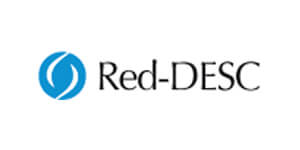
ESCR-Net - International Network for Economic, Social and Cultural Rights connects over 230 NGOs, social movements and advocates across more than 75 countries to build a global movement to make human rights and social justice a reality for all.
It contributes to the strengthening of human rights, specifically the economic, social and cultural rights of individuals and communities and to continue to develop tools to promote, protect and ensure its enforcement.
Contact:

Urgent petitions
The System of Solidarity (SOS) is a vehicle to harness the collective voice of ESCR-Net – through online petitions, collective letters, outreach via social and mainstream media and sharing resources and tools – to increase protection for human rights defenders under threat and prevent imminent human rights violations from taking place.
Reporters Without Borders
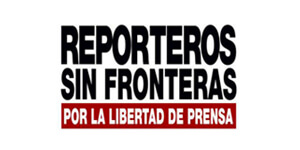
Reporters Without Borders (RSF) is an independent NGO that defends the freedom of information as the fundamental right to inform and be informed.
Contact:

Emergency Assistance Grants
The Assistance Desk of Reporters Without Borders (RSF) provides financial and administrative assistance to professional journalists and citizen-journalists who have been the victims of reprisals because of their reporting.
In cooperation with other NGOs that support journalists and defend human rights, RSF helps:
- The victims of violence connected with their reporting to obtain appropriate medical care.
- Wrongfully prosecuted journalists to pay their legal fees.
- Threatened journalists to find a safe refuge.
- Journalists to resolve their most urgent needs if they decide to flee abroad because of threats and persecution.
- Families of journalists to cope with the consequences of the reprisals.
We Are Defenders Programme
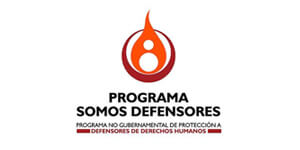
Their objective is to develop an integral proposal to prevent aggressions and to protect human rights defenders at risk in Colombia.
Where do they work?
Colombia
Contact:

Emergency grants for reallocation
This Programme supports defenders that need to move away from risk areas to other towns or even abroad, on a temporary basis. This support can be:
- Humanitarian Support: Giving economic support to a defender who has not got the resources for his/her immediate protection, when facing an imminent risk. The defender needs to demonstrate that lack of protection where they are based.
- National Internship: To save their lives, defenders are temporarily relocated (3 to 6 months) with the aim that they continue working for human rights, despite being in another place.
- International Internship: To save their lives, defenders are temporarily relocated (up to 1 year). This option is available when there is an extreme risk to their safety and when there are no possibilities to guarantee their safety in Colombia. The aim is for them not to stop working for human rights, despite being abroad.
This programme advises defenders on how to access the country’s protection mechanisms (in case defenders want to do so) and equally, how to apply these self-protection mechanisms to their particular situation

Urgent Responses
This programme advocates with government, national institutions, multilateral organisations, embassies, and the international community, to promote political measures to protect defenders, their organisations, and communities.
This programme has set up the Human Rights Defenders Aggressions Information System to document, investigate and standardise the flow of information about acts of aggression towards defenders, with the aim to continually monitor and produce information about these issues, nationally and internationally.
Swedish Fellowship of Reconciliation (SWEFOR)
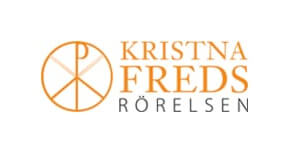
The Swedish Fellowship of Reconciliation (SweFOR) is a nonviolence movement that works for peace and justice. They offer accompaniment to human rights defenders and other activists in Mexico, Guatemala, and Colombia.
Where do they work?
Colombia, Guatemala and Mexico
Contact:
Contact in México:
Contact in Guatemala:
Contact in Colombia:

International Accompaniment
Swefor accompany human rights defenders and other peaceful civil society agents.
Every year, Swefor sends peace observers to countries of conflict to participate in the work for peace, democracy, and human rights. They become part of a global network trained to report human right abuses and to protect the people who actively work for peace and justice. This accompaniment is used to deter those who want to commit violent aggressions against those defenders, and at the same time, to protect defenders’ physical and mental integrity. International presence can stop violence and at the same time can dignify the work of those individuals and organisations that are accompanied.

Urgent Appeals
Swefor divulges information and sets up immediate responses to assist in cases of aggressions against defenders. One of their objectives is to spread information about human rights situations and provide moral support to defenders and accompanied organisations.
Human Rights Defenders Protection Unit In Guatemala
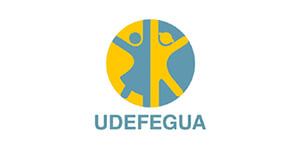
Since 2000, it provides different services to human rights defenders in Guatemala and other countries in Central America. Its mission is to provide integral support to defenders and empower them in their security and safety management.
Where do they work?
El Salvador, Guatemala, Honduras, Nicaragua, and Mexico.
Contact:

Legal assistance
UDEFEGUA provides support to cover lawyers’ fees. It helps with the development of litigation strategies.

Medical and Psychosocial assistance
UDEFEGUA offers medical and psychosocial support to defenders at risk.

Urgent petitions
It sends urgent appeals to regional and international human rights authorities, as well as NGOs.
Those appeals are published in their annual report.
Women Human Rights Defenders International Coalition
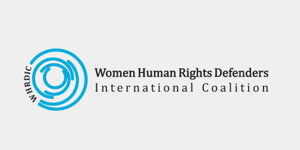
The women human rights defenders’ movement affirms and validates the essential work of women defenders, while recognising the unique threats faced by women in their human rights work. This movement enables women human rights defenders around the world to discuss tactics and successes, as well as share resources. The movement provides a global network of support and solidarity, and the ability to band together and demand action when a defender is under threat. It provides a resource and advocacy network for women human rights defenders worldwide.
Contacto:

Urgent petitions
They got a working group for urgent appeals